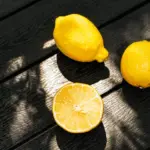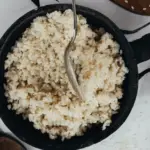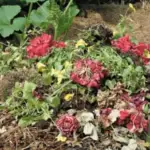You know eggshells are biodegradable, but what about composting? Can you compost eggshells?
Eggs make an appearance at every meal, including snacks. They are also common ingredients in recipes. It also means a lot of Eggshells going into the garbage. Eggshells are biodegradable, even colored ones.

Can You Put Eggshells in Compost?
Eggshells can go in compost piles, either whole or crushed. Chances are your compost has plenty of nitrogen and carbon from the brown and green layers, but plants also need calcium to grow.
Seedlings use calcium to build cell walls necessary for spring growth. Some plants need plenty of calcium to keep them from developing blossom end rot. The disease can be a particular problem in vegetable gardens, especially in plants like squash and tomatoes.
The calcium contained in eggshells can keep your vegetable plants strong and healthy.

How to Compost Eggshells?
Putting eggshells in compost is as easy as a quick trip to the pile. Unlike some other compostable items, you don’t have the crush the shells. It’s okay to toss whole eggshells into the compost heap.
Crushing the shells can speed up decomposition, but it’s not necessary.
It is a good idea to rinse the shells off before taking them outside. Even though the scent is faint, eggshells have an aroma that can attract pests. It also reduces any risks raw eggs can pose to your health.
Go ahead and aerate the pile using a garden rake or fork. You want to get the decomposition process started. Mixing eggshells in both brown and green layers will help keep the compost pile balanced.
Flip the pile once every couple of days for about a week to keep the internal temperature up and air flowing through the center.

Can You Compost Eggshells in Soil?
You can compost eggshells even if you don’t have a pile in the backyard. You also don’t need a composting bin.
The shells can go directly into the soil. Gardeners commonly add eggshells to the soil around their vegetable plants. As the shells break down, they release calcium into the ground.
Plants like tomatoes, squash, and peppers have high calcium needs. The nutrient supports the plants’ rapid growth and ensures the blossoms produce fruit.
There is a downside to composting eggshells in soil.
It will take about a year for the eggshells to break down and release calcium. For the first season, you may still need to use a calcium-based fertilizer.

Get Rid of Garden Pests with Eggshells
Snails, cutworms, and slugs are a few garden enemies you spend the season trying to keep off of your plants.
You don’t like using pesticides in the garden, especially near your vegetable plants. Some of the chemicals in these products are extremely hazardous if ingested.
Eggshells work similarly to diatomaceous earth. The soft, sedimentary rock is crumbled into powder and used in gardens as natural pest control.
The crushed rocks have tiny, sharp edges that make cuts in the insects as they crawl over the material.
The cuts cause dehydration and eventual death. Crushing eggshells into a similar powder will have the same results.
Your garden stays relatively pest-free without the use of chemicals.

How Long Does it Take For Eggshells to Decompose?
Eggshells take a while to decompose. It’s why you won’t see the benefits from composting the shells in soil for a season or two.
On average, it takes around three years for eggshells to decompose. It can take longer, depending on environmental conditions.
Eggshells take longer to break down in cooler climates or when the compost pile does not receive a lot of sunlight.
You can increase the rate of decomposition by using the hot composting method.

How Do You Quickly Compost Eggshells?
Waiting three years or more for eggshells to decompose means no natural calcium for your garden plants, but there are a few tricks you can use.
Grind the eggshells in a blender before tossing them in the compost. If you don’t want to clean the tiny bits off of the blades, you can also pulverize the shells. Place a kitchen or paper towel over the shells and take a meat tenderizer to them.
Your fists will also work. It only takes a little pressure to crush eggshells.
Spread the eggshells out across the center of the compost pile and cover with a green or brown layer.
A green layer consists of plant trimmings and grass clippings, while the brown contains twigs, leaves, and wood dust.
Using a garden fork or rake, aerate the pile. You want to do this at least a couple of times during the first week. Afterward, you can cut back to flipping the compost once every two or three weeks.

Can You Compost Eggs?
You can put the shells in compost, but it’s different when it comes to eggs.
A good composting rule to remember is never put cooked eggs in compost, even a closed bin.
The smell will attract backyard pests like raccoons, possums, and rats, along with insects and other critters you don’t want in the compost.
There are the same risks associated with composting raw eggs, but it is possible. Most compost piles can manage one or two raw eggs.
Dig a hole in the center of the compost pile. It’s where the temperature is highest. You also want to break the eggs before they go in. When a raw egg breaks it can release a strong sulfuric aroma that can quickly attract pests.
Bury the raw eggs and shells with a brown, carbon-rich layer. It will help minimize the smell and balance out the nitrogen levels.
Conclusion
You can compost eggshells and it’s pretty simple. Crush the shells and dump them in your compost.
Eggshells can also go directly into your garden soil. After a few seasons, the shells break down and provide the plants with the necessary calcium.
Be careful with shells from raw eggs.
The risk of salmonella is minor, but you still want to wash the eggshells before they go into the compost.






